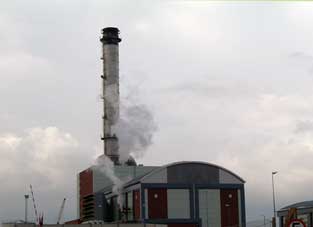Road Traffic Emissions and Congestion Levels Worsen In Major UK Cities
11-11-2013
Eleven of the 17 largest cities in the United Kingdom saw their congestion levels worsen during the twelve months leading to June 2013. Levels increased in Belfast, Brighton, London, Manchester, Leicester, Sheffield, Liverpool, and Newcastle, according to the Traffic Index report from satellite navigation firm TomTom.
The study shows that Belfast remains the most congested city in Britain, with journey times in the morning rush hour being 88% longer than in non-peak times. Bristol is the second most congested city, where travel times increased by 66% in the evening rush hour. In third place is Brighton, where journey times take up to 45% longer than they did a year ago.
Currently, driving in London takes 60% more time in rush hours than in 2012, while throughout the day, driving in the capital takes 29% longer than if the traffic was flowing smoothly. These statistics make London the fifth most congested city in Britain, right after Edinburgh.
TomTom analysed more than nine trillion pieces of data globally in order to compile the Index, and concluded that Moscow is still the most congested city in the world, with Istanbul and Rio de Janeiro taking second and third places, respectively.
The study shows a possible pattern between the congestion levels increase and economies emergence from recession, said Harold Goddijn, TomTom’s chief executive officer. Traditional responses to deal with congestion, such as widening and building new roads, are no longer effective, he said, adding that the way traffic is managed needs significant change as road traffic emissions are rapidly on the rise.



